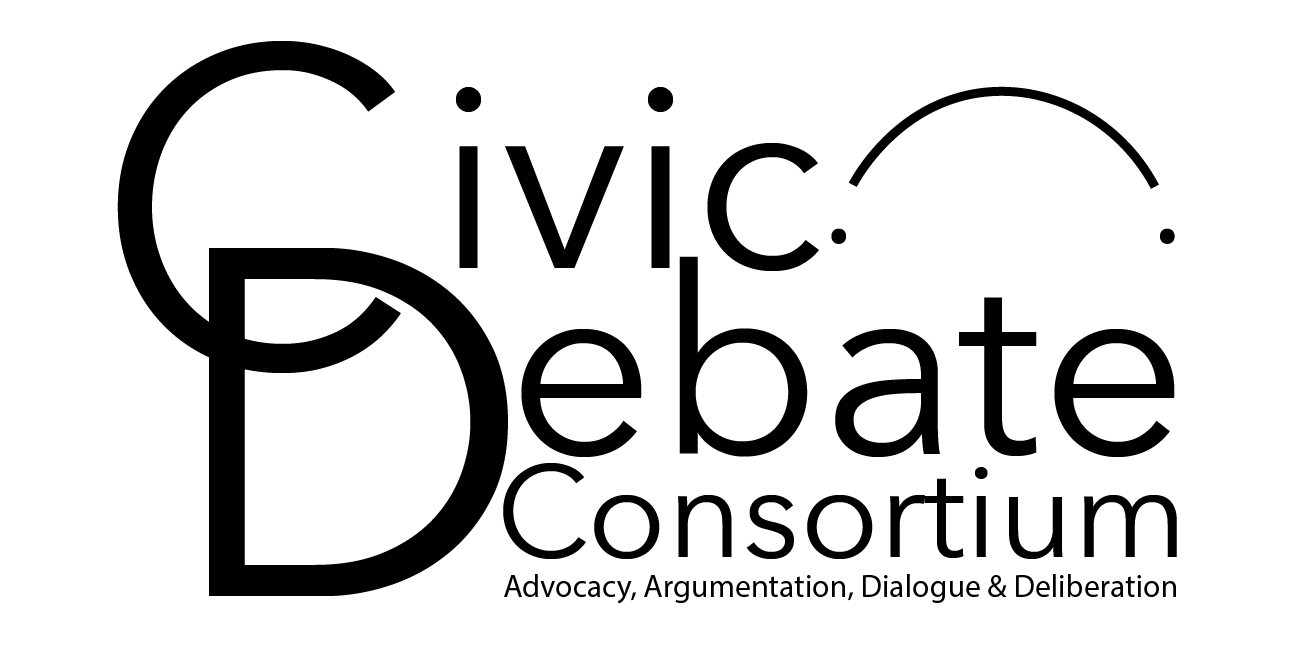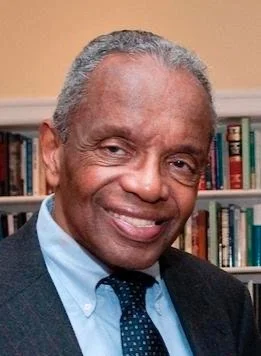2019-2020 Social Justice Debates
Selected Scholars
Roy L. Brooks
Topic Statement :
“For African Americans and the nation as a whole , the question of reparations is the most significant issue in the quest for racial equality since the passage of civil rights legislation in the 1960s.
With race relations today severely challenged and getting worse, Black reparationscan be an opportunity to turn things around - but only if we seize upon the moment with probity and intelligence. ”
The 2019-20 Social Justice Debates responds to this call and others for debate and dialogue on reparations for slavery by inviting students, judges, stakeholders, activists, scholars and citizens to engage the scholarship of William A Darity Jr. and Roy L. Brooks on the question of whether the United States Federal Government should provide direct compensation to African-Americans who descended from slaves as reparations for slavery. Darity described the core objective of reparations in his 2019 testimony to Congress as follows:
Today, Black Americans constitute approximately 13 to 14 percent of the nation’s population, yet possess less than 3 percent of the nation’s wealth. A core objective of the reparations program must be to move the Black American share to at least 13 to 14 percent. Reparations designated specifically for Black American descendants of slavery must be enacted and implemented to achieve that aim, moving Black wealth, roughly, from less than $3 trillion to $13 to 14 trillion.
To promote discussions exploring the challenging policy questions raised by Darity and Brooks on the implementation of reparations for slavery, affirmatives are asked to defend a model of reparations with direct compensation by the United States Federal Government to African-Americans who descended from slaves as a central element of a policy intended to address this wealth gap consistent with Darity's and Brooks' scholarship. Negatives may win by either rebutting the affirmative arguments for implementing the affirmative's model of direct compensation reparations and/or by demonstrating the superiority of a competing model; i.e., demonstrating that it would be more desirable to implement solely the negative's model rather than the affirmative's model or both the affirmative's and negative's models.
For the purposes of exploring this research question, debaters should interpret the topic in a manner consistent with this topic statement and the reparations scholarship of Professors Darity and Brooks. This should include assuming that the United States Federal Government is the only potentially viable actor for providing comprehensive reparations for slavery to African Americans. It should also include affirmatives both defending the proposition that all or nearly all African Americans who descended from slaves should receive direct compensation including all or nearly all middle class and lower-upper class African Americans who descended from slaves, and being prepared to specify in cross examination whether they would propose to fund reparations in any manner other than normal means and to defend any such specification. The Affirmative's advocacy is not meant to be exclusive of reparations for other groups or other types of reparations. The GWU Social Justice debates is intended to serve as preparation for the Social Justice Debates National Championship at Morehouse College. Per the topic statement for that competition, on the Morehouse campus both the terms "African American" and "Black" are acceptable and appropriate terms for referring to people who have Black skin and are of African descent. The purpose of the 2019-20 Social Justice Debates is not to resolve which term is more appropriate.
The 2018-2019 Social Justice Debates featured four tournaments, two held at the Morehouse College, one at the George Washington University, and one online by Quash TV!
2019-2020 US National Champions:
University of Miami
William Darrity Jr.
In 2014, journalist Ta-Nehisi Coates reignited national discussion over reparations for slavery and discrimination with his Atlantic article, The Case for Reparations. In his article, Coates explained the value and importance of public debates on the issue of reparations as follows:
Scholars have long discussed methods by which America might make reparations to those on whose labor and exclusion the country was built ... To celebrate freedom and democracy while forgetting America’s origins in a slavery economy is patriotism à la carte. Perhaps no statistic better illustrates the enduring legacy of our country’s shameful history of treating Black people as sub-citizens, sub-Americans, and sub-humans than the wealth gap. Reparations would seek to close this chasm. But as surely as the creation of the wealth gap required the cooperation of every aspect of the society, bridging it will require the same.
Perhaps after a serious discussion and debate—the kind that [the Bill for the Commission to Study and Develop Reparation Proposals for African-Americans Act] proposes—we may find that the country can never fully repay African Americans. But we stand to discover much about ourselves in such a discussion—and that is perhaps what scares us
2018-2019 Social Justice Debates Selected Scholar
Topic Statement :
“Why would you entrust authority with enlarged powers of regulating the speech of unpopular minorities unies you were confident that unpopular minorities would be racists, not Black ? ”
2018-2019 US National Champions:
Morehouse College
For the 2018-19 Social Justice Debates Selected Scholar, the Walter E. Massey Leadership Center at Morehouse College has supported Henry Louis Gates, Jr., the Alphonse Fletcher University Professor and Director of the Hutchins Center for African and African American research at Harvard University, and his scholarship on hate speech including his book chapter “War of Words: Critical race Theroy and the First Amendment”.
In War of Words, Professor Gates suggests speech regulations intended to protect minorities are destined to be used angainst them. In doing so, Porfesor Gates quotes critical race theorists Charles Lawrence for the proposition that “by framing the debate as we have - as one in which the liverty of free speech is in conflict with the elimination of racism - we have advanced the cause of racial oppression and placed the bigot on the moral high ground, fanning the rising of racism.
During the 2019 U.S. National Championship, at Morehouse College, teams assigned to the affirmative side of the topic will defend the proposition that university speech regulations intended to protect people of color are, on balance, detrimental to the people of color they are intended to protect. Negative teams will have the burden of rebutting this contention.
The 2018-2019 Social Justice Debates featured four tournaments held at the University of Southern California, the University of Rhode Island, the George Washington University, and Morehouse College.
Henry Louis Gates Jr.
2017-2018 Social Justice Debates Selected Scholar
Topic Statement :
““If jails and prisons are to be abolished, then what will replace them? This is the puzzling question that often interrupts further consideration of the prospects for abolition .... The first step ... [is] ... to let go of the desire to discover one single alternative system of punishment that would occupy the same footprint as the prison system..... An abolitionist approach ... require[s] us to imagine a constellation of alternative strategies and institutions ... and a justice system based on reparation and reconciliation rather than retribution and vengeance ... Many organizations and individuals both in the United States and other countries offer alternative modes of making justice. In limited instances, some governments have attempted to implement alternatives that range from conflict resolution to restorative or reparative justice.... There is a growing body of literature on reshaping systems of justice around strategies of reparation, rather than retribution, as well as a growing body of experiential evidence of the advantages of these approaches to justice and of the democratic possibilities they promise.””
In her seminal work on prison abolition, “Are Prisons Obsolete?,” Angela Davis rejects the notion there is a single alternative to jails and prisons and calls instead for scholarship imagining a constellation of strategies that includes a justice system based on reparation and reconciliation rather than retribution and vengeance. The 2017 Social Justice Debates aspire to answer Davis’s call for scholarship by scrutinizing the question of whether prioritizing transformative justice for violent offenders might serve as one important element of a larger constellation of strategies for prison abolition.
Although the terms are sometimes used interchangeably, transformative justice is often described as an "extension" of restorative justice that goes beyond restoring injured stakeholders to transforming all parties involved for the better. Specifically, restorative justice generally includes at least two elements: (1) all injured stakeholders have an opportunity to discuss how they have been affected and to help decide what should be done to repair the harm; and (2) rather than being punished, offenders are asked to acknowledge their crime and attempt to atone for it. Transformative justice adds to this restorative justice framework by engaging communities to transform societal structures, provide victims with answers for why they were victimized, provide restitution, and promote public peace and order.
During the SJD affirmative teams will be expected to broadly defend the prioritization of transformative justice (as defined above) over other models of criminal justice. This includes defending the desirability of seeking decarceration alternatives for a substantial majority of violent offenders. Judges will be instructed that negative teams may defend either the status quo or propose a competing model of criminal justice and argue this competing model is superior to transformative justice.
Teams are asked to avoid focusing debates on extreme examples such as offenders who have been confirmed to be serial killers or serial child predators. Although such examples also pose challenges for prison abolition scholarship, they likely require different solutions than those suited for the more common violent offenses that are the focus of the SJD.
The 2017-2018 Social Justice Debates featured two tournaments held at Morehouse College and the John Jay College of Criminal Justice. The series included a partnership with the National Association of African-American Honors Programs that engaged eight Historically Black Colleges and Universities as competitors at the Morehouse competition.
2017-2018 U.S. National Champions:
The George Washington University
Angela Davis
Topic Statement :
2016-2017 Social Justice Debates Selected Scholar
The late Professor Derrick Bell is deemed by many to be the “godfather” of critical race scholarship. Professor Bell’s scholarship, in part, explored a social justice theory referred to as “interest convergence,” which posits that people holding political, social and economic power will support social justice for minority groups only when they understand and see that there is something in it for them; i.e., when there is a perception of “convergence” between the interests of the dominant group and social justice. Most notably, Professor Bell asserted that the Supreme Court’s decision in Brown v. Board of Education was motivated more by a desire among U.S. leaders to promote a positive image of the U.S. to the world during the height of the cold war than by a genuine interest in social justice.
The Derrick Bell Debates topic asks debaters to grapple with the question of whether social justice movements should adopt interest convergence as their primary organizing principle when developing strategies to promote social justice. In other words, in a world of limited time, media exposure, and resources, social justice movements often have to choose one message or set of tactics over others, which raises the question of which messages and tactics should receive priority. The topic asks whether, in cases involving such trade-offs, social justice movements should prioritize tactics that promote interest convergence (or a perception thereof) as a means of promoting criminal justice reform over other tactics as a general rule.
The 2016-2017 Social Justice Debates featured two tournaments held at Morehouse College and The George Washington University.





